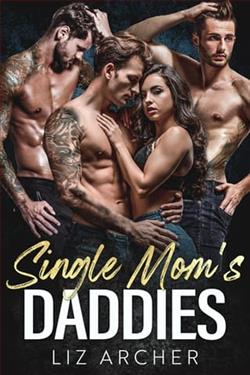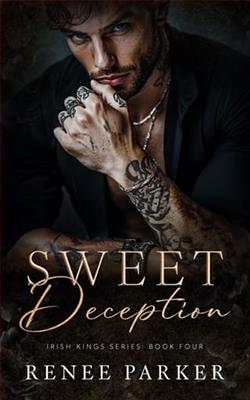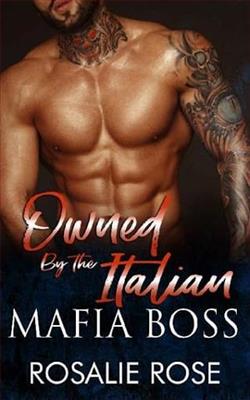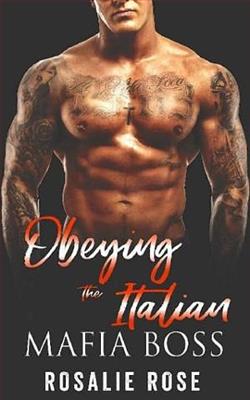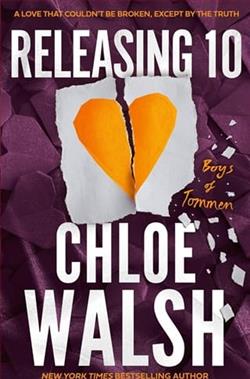Page 4 of Ironling
After a week, he’d no intention of relighting his grandfather’s forge. It sat ashen and dark, an empty mouth never to be fed again. He couldn’t bring himself to stand there and work the bellows, bring life back into a place so well loved.
His grandparents’ bodies were washed and prepared in the proper way, he saw to that. He and his aunt Sighíl said the rites and laid them upon the funeral bowers. Their pyres burned long into the night, scattering flames into the sky to be carried away by the wind to the afterworld, where together they would live again.
Without Hakon.
All he’d ever known in his thirty years was his grandparents and their home nestled into the Green-Fist clan’s stronghold of Kaldebrak. After his human father perished in a hunting accident and his orcish mother disappeared into the wilderness with her grief soon after, his grandparents were his life. He whittled and set gemstones with his grandmother as they chatted with their hands; he worked the bellows and wielded the sledgehammer as his grandfather formed molten iron into fantastical shapes. Although the rest of the clan was ambivalentto him as a halfling, his grandparents had shown him nothing but kindness and love.
Ever since he was a youngling, Hakon had been hard of hearing in his right ear, just like his grandmother. She’d taught him to speak with his hands and read the lips of others. It made them good companions for a blacksmith, as many a smith lost their hearing over a lifetime of hammer strikes. Outside his grandparents’ home, his ear was a vulnerability, one he worked to compensate for by being quick, strong, and observant.
Still, his grandparents couldn’t help protecting him, even coddling him. It would be easy to live the life they built for him—safe, secure, a place he understood. They had left him the house, the forge, everything he needed. Except, as the cold, lonely days passed gloomily inside that very house, Hakon had come to the painful realization that his life was no longer here.
Chieftain Kennum would surely take him on as a blacksmith if he sought work—war might be coming, and there was a need for every available smith, even in a place like Kaldebrak that overflowed with them. He could earn respect and a living through his skills. But he didn’t want a living, he wanted a life. Which wasn’t to be found here.
He could honor his grandparents’ sacrifice and gift, or…he could take the chance to be happy. Get away from his stifling grief and the life of little promise he’d have here and go find…something else.
Of course, this was all difficult to explain to his aunt Sighíl. Even now, she took up most of the front room of the modest home, fists on her hips, her frown imperious as she watched Hakon pack. She hadn’t been quiet about her disdain for his plan to leave Kaldebrak—but then, his aunt wasn’t quiet about most things. There was a reason his grandfather had taught him the trick of using the beeswax they put in their ears to dull loud hammering whenever Siggy came knocking.
As a grown male, Hakon realized now that Siggy was loud because she wanted to be heard in a family hard of hearing and hard of head, but it was also because she cared. Based on her current volume, she cared a great deal.
“I just don’t see the point,” she said for the third time, shaking the rafters. “You have everything you need here.Manananddaronleft you the house.Daronhis forge and tools. Everything you could need.”
The guilt of those truths burned the back of his throat, but Hakon didn’t stop his methodical folding. He wouldn’t be bringing too much, just what he could carry on his back; clothes, a few treasured baubles, supplies for the journey, the gems he’d sold the house for, and some of his grandfather’s smithing tools he couldn’t bear to part with.
Oh, and the glorified rug currently snoring by the fire.
Like many in Kaldebrak, his grandparents had always been fond of dogs. They kept a pack of wolfhounds that trotted after them into the market and sat at the table to keep them company on rainy days. Most were gone now, either passed or taken in by Siggy and her two mates, who together ran another smithy specializing in silversmithing on the other side of Kaldebrak. The only one left was Wülf, a grumpy four-year-old hound who didn’t really like anyone and was too stubborn to leave with his siblings and Siggy.
Hakon loved the mutt, and even if he wasn’t the friendliest dog, his constant companionship was welcome over the last week. Hakon had no doubt that when he left tomorrow, Wülf would follow, even if he huffed and grumbled about it.
For now, the beast was content to lie there as a general nuisance and tripping hazard.
By contrast, Siggy stood across the room, her contained energy making her vibrate with impatience. If Hakon let her, she’d have him packed up and moved in with her, her mates, andher twins. While he loved visiting them, their home was already full to the brim—especially now with three more giant hounds.
And…the house was full of love. Siggy and Halstern were the loud, boisterous ones, and often their tempers and stubbornness got the better of them. Viggo was the peacemaker, soothing tempers and keeping the smithy orderly. Their lives were controlled chaos to Hakon, but it worked for them. He didn’t want to upset the balance of their home.
Nor witness every day the thing he wanted most—a life, a family. Matehood. If he stayed, he feared his envy would grow into something even uglier.
He couldn’t burden them. He couldn’t stay in this empty house. He couldn’t live a half-life, safe but hobbled. So away he must go.
His mind was made.Now just to convince Siggy of that.
“There’s nothing for me here,” he told her patiently.
“No, nothing, just yourfamilyand yourlife,” she huffed.
He winced. Her barb wasn’t meant to hurt, not truly; he knew Siggy, she was sharpest when she herself was hurting. He glanced up and finallylookedat her.
Siggy stood there, arms crossed over her muscular chest and eyes gone glassy with dammed tears. In that moment, she looked much younger than she was, like the young orcess who’d already lost her elder sister and now her parents.
Siggy and his grandparents often remarked how much he resembled his mother Ingrid. Even though he had a more human face, with shorter ears and small tusks and a thinner nose, he’d lived his whole life being told he had Ingrid’s eyes, Ingrid’s countenance, Ingrid’s good nature.
It’d taken Hakon a long while to outgrow his resentment over it. He didn’t want to have parts of his mother—he wanted all of her. He wanted her to have stayed with him, that he’d been enough to keep her from falling down the pit of despair thatcame with losing a mate. But he hadn’t. She hadn’t.
Hakon, with his mother’s eyes and good nature, was all his family had left of Ingrid, beloved sister and daughter. When Siggy looked at him, he wasn’t sure she always saw him, Hakon.
He couldn’t fault her for it. The aching maw of loss was ever-present in his heart at Ingrid’s absence, and he’d hardly known her, young as he’d been. Siggy and his grandparents had had her for far longer.
Yet, Hakon wanted to be his own person. With his own life.









